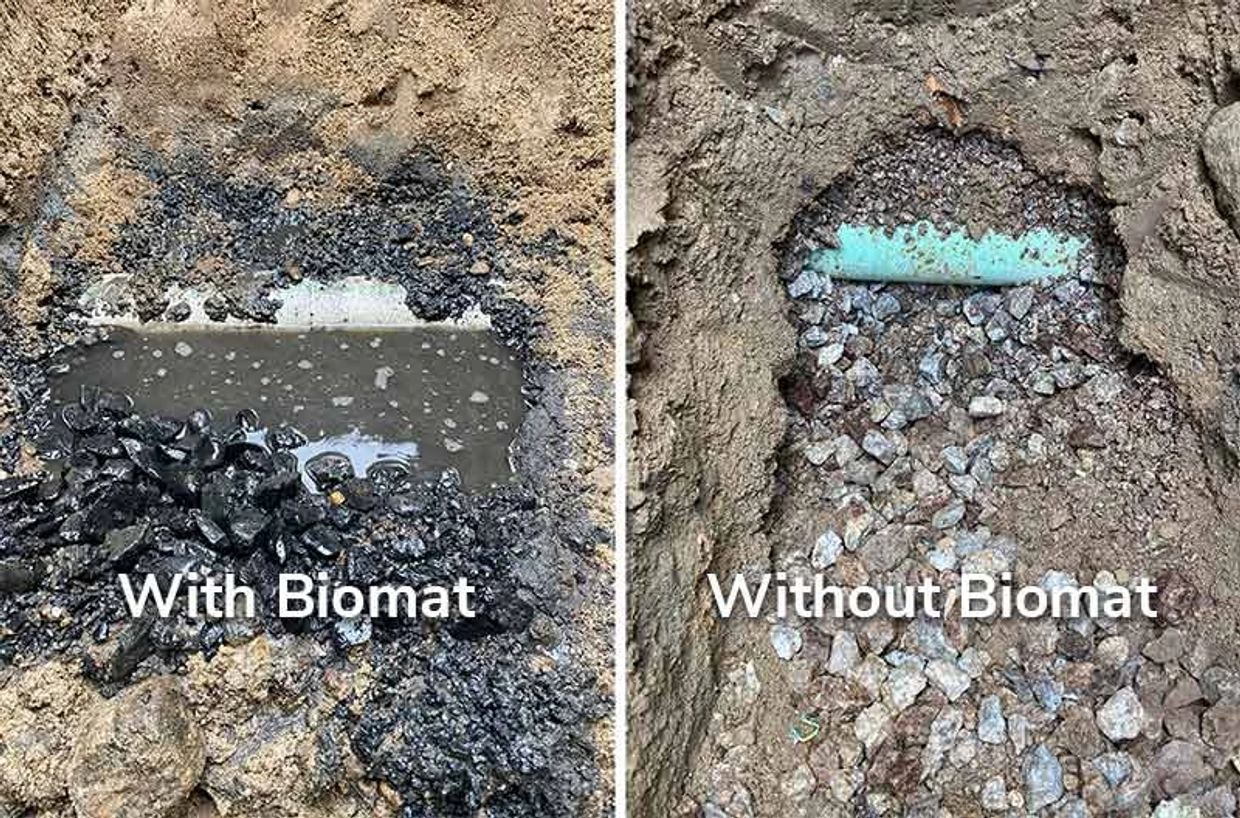
“Septic System Biomat” and It's Effects on your system
Let's find out what it is and how it can, make or break your septic system operation
When discussing your septic system, your service provider may use the phrase “biomat.” While it’s not a term that most homeowners are usually familiar with, it is a key element in the health of their septic ecosystem that every homeowner should understand if they want their septic system to last. Why? Because the septic system biomat is the #1 reason that most systems fail.
Biomat is a shorthand term for the biomaterial layer that exists in the soil under and around your septic system drain field, as well as in dry wells used for the disposal of greywater. It consists primarily of anaerobic microorganisms, which do not require a lot of oxygen to survive.
How does septic system biomat actually provide filtration?
Think of your septic tank as your first filter. Heavy solids fall to the bottom of the tank, the greasy scum rises to the top of the tank, and the effluent in the middle (watery wastewater) flows out of the tank into the drainfield. The condition of the biomat layer can either keep your septic system healthy – or it can cause it to fail. Since the biomat lives right outside the septic drainfield, it becomes the first level of treatment. These microorganisms feed off the naturally occurring bacteria, thus filtering out pathogens and viruses before the effluent continues to flow into the groundwater. However, the biomat layer tends to be thicker than normal soil, and is slower to drain than normal ground soil. If the biomat layer becomes too thick or there are other clogs in the drainfield, this can become a problem. If the drainfield cannot handle the flow of effluent wastewater, two things can happen. First, the level of effluent will rise and seep into the soil above the biomat layer, which ultimately bypasses a critical layer of filtration. This can contaminate the groundwater nearby if not filtered properly. Second, the level of effluent can back up into the home, presenting a dangerous mess that is difficult to clean up. In either case, you have a septic system failure on your hands, which every homeowner wants to avoid.
What can be done about keeping your biomat layer at the right levels?
Fortunately, there are simple steps you can take to keep the septic system biomat layer from getting too thick and causing major problems. Septic tank pumping on the proper intervals. This doesn’t necessarily mean every year! It just means however long it takes your particular household to get to certain levels in your tank. If you don’t know how often you need to pump your septic system, book a maintenance call at our office 704-224-4199, Reduce household water usage. It’s important to fix leaky toilets and other fixtures that leak small amounts of water that add up over time. Try to space out showers, laundry loads, and washing dishes to avoid dumping large amounts of water into your septic system at one time. Filters – Septic tank filters and septic tank baffle outlet filters can be added to try to reduce the amount of particles flowing out into the drainfield. If you have a system that was installed in 1999 or later in North Carolina, installers were required to install a filter per North Carolina regulations, and these filters should be inspected, cleaned and reinstalled or replaced if damaged, when you have your system serviced and pumped.
What happens if the septic system biomat becomes too thick?
Unfortunately, when the biomat layer becomes too thick, it can cause major problems, including environmental pollution and toxic waste backup into your home. Full Service Septic can help. If you suspect a problem with your drainfield or a septic system failure, we can perform a thorough septic tank and drainfield evaluation to determine if you have an issue and give you all possible solutions, If you do have significant septic system biomat buildup, it doesn’t necessarily mean you need to replace the whole system. With excavation, labor, and parts, a full replacement can be a costly project.
Hopefully no one has a major Biomat layer problem, because with a little education and routine maintenance and some small lifestyle habit changes your system should be worry free for years to come.
As always, if you are in need of Septic Tank Services or Septic System Repairs give the crew at Full Service Septic a Call to go over your system needs.
704-224-4199 we are located in Salisbury and serve all the surrounding towns and counties.
" WE DIG IT "
This website uses cookies.
We use cookies to analyze website traffic and optimize your website experience. By accepting our use of cookies, your data will be aggregated with all other user data.